As the official archive for the UK Government, it is perhaps unsurprising that The National Archives holds a vast array of records relating to the conflict on the Falkland Islands, which began 40 years ago in April 1982. With the approach of this anniversary, we have been looking at the range of political, diplomatic, and military records, relating to before, during and after the conflict, held in our collections.
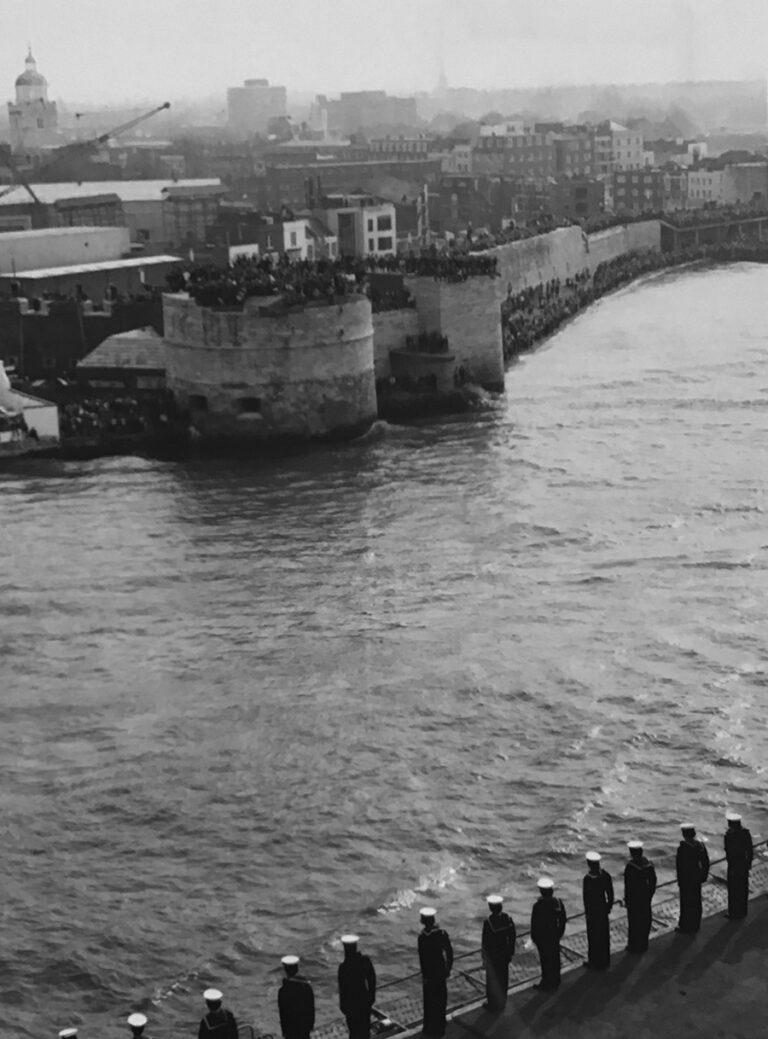
Naturally, some records are still closed or include closed extracts because of their sensitive nature, but many of the records we hold can be found with a simple search of our catalogue using keyword terms such as “Falklands” or “Operation Corporate”, and we have put together a few examples of these, as well as other interesting records, below.
Prelude to the conflict
The controversies surrounding the sovereignty of the Falkland Islands (or, for Argentina, Islas Malvinas) were not new in 1982. The National Archives holds many sets of records, primarily dating from the early 20th century, a large proportion of which relate to competing claims over the islands. Most of these can be found in correspondence from the Foreign Office (mainly in the FO 371 series, but also in the CO 1024 series which concerns registered files on the Falkland Islands in the Colonial Office).
In the FO 354 series, The National Archives even holds the papers of Sir Woodbine Parish who, as the British commissioner and consul-general to Buenos Aires in the 1820s, brought the importance of the Falkland Islands to the notice of the government, and was instructed to lay claim to them as a British possession.
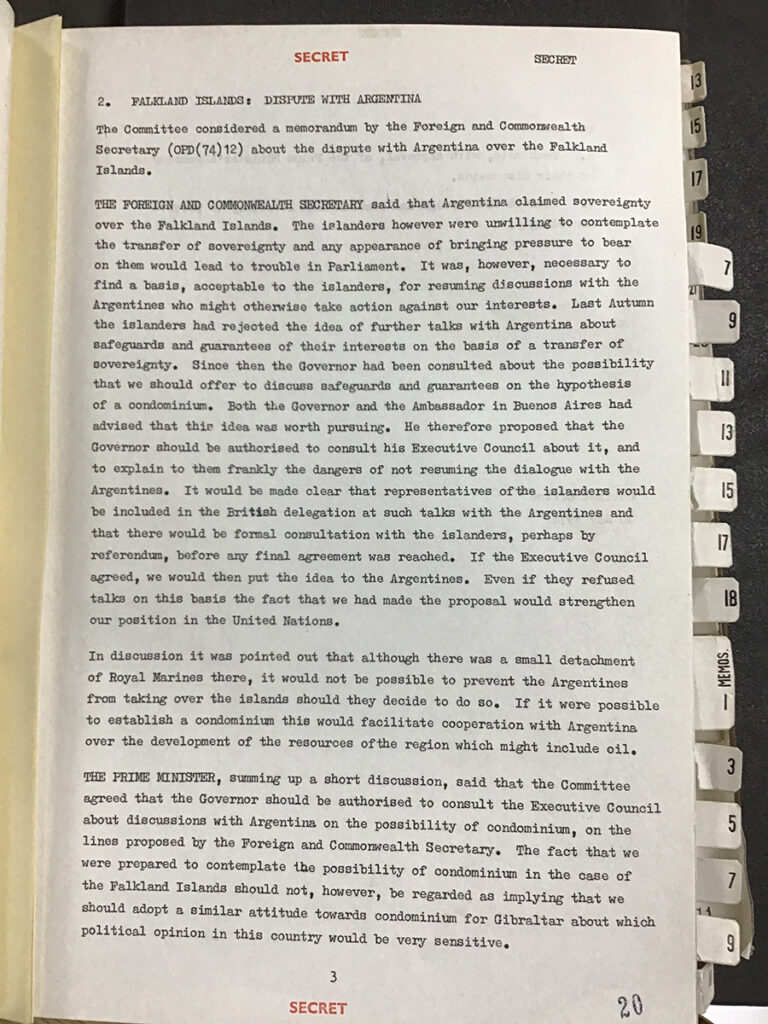
As relations between the United Kingdom and Argentina rapidly deteriorated prior to 1982, many records can also be found in FCO 7, and cover a number of important issues, including the question of a referendum for Islanders on the transfer of sovereignty, and British policy towards the Islands.
Political and diplomatic records
At the commencement of the conflict, as might be expected, a huge amount of paperwork was generated which focused on the planning around despatching the British Task Force to the islands once they had been invaded, as well as on the political and diplomatic efforts put in place by the UK Government.
Once again, a broad range of records can be found in the FCO 7 series, as this is dedicated to the American and Latin American departments of the Foreign and Commonwealth Office. FCO 7/4490, for example, includes communications between London and the Falkland Islands in the days leading up to and immediately after the start of the conflict. This also includes the telegram which announced the invasion, the surrounding of Government House in Port Stanley and the severing of radio communications on the island, and the whole file can be downloaded directly from our website.
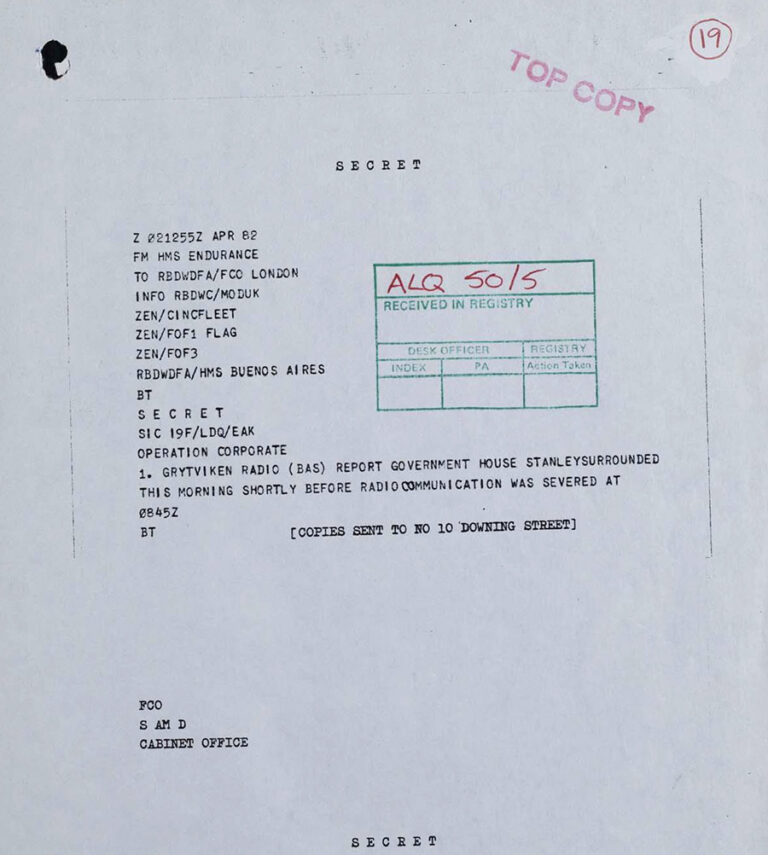
Moreover, the DEFE 13 series, which contains registered files from the Ministry of Defence, holds a range of material which relates to the political and diplomatic efforts undertaken by the UK Government, including relations with other nations as a result of the conflict, and some of these records also include photographs. DEFE 13/1655, for example, includes a range of material relating to prisoners of war, military actions undertaken by British forces, casualties, and the surrender of the Argentine garrison in June 1982.
Military operations
Records relating to British land, air, and sea campaigns can be found in a variety of records series, and cover nearly every aspect of military operations as they relate to Operation Corporate.
The National Archives holds a range of both operations records books for Royal Air Force squadrons, as well as Royal Navy Commander’s diaries, both of which include details about day to day events, often including some photographs of operations.
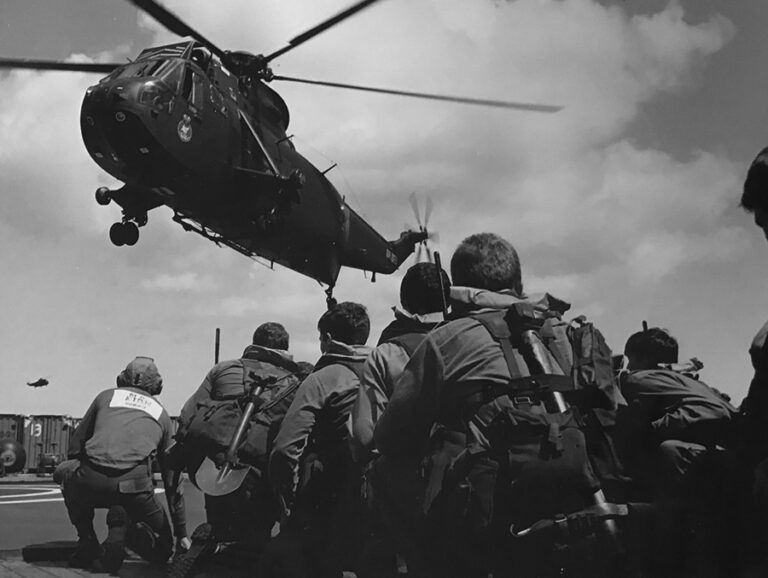
While, at ground level, if you were interested in what a unit was doing on a day to day basis, including in the conduct of military operations, then you can find many of these in the Army Unit Historical Records and Reports in WO 305. This series actually includes the records of army units on operation from the 1950s onwards, and include those units which served in the Falklands. As well as a diary of operations, they often also include reports, orders, notes from senior officers, maps, and many other miscellaneous documents. Equally, operational information for Royal Marine units can be found in the ADM 202 series, the diaries of which fulfilled a similar function to the Army Unit Historical Records.
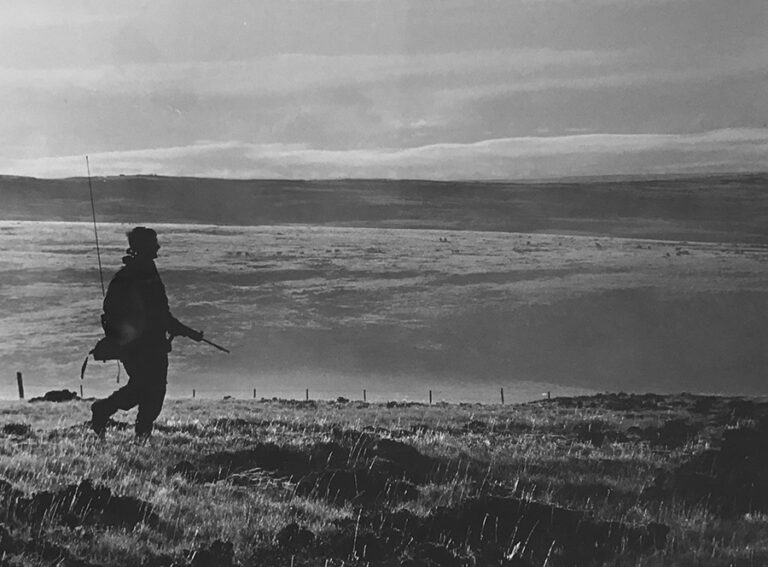
Naturally, The National Archives collection also includes records relating to specific events and operations, particularly those which required an inquiry or further study in the immediate aftermath of operations. This includes details of the Board of Inquiry into the loss of HMS Sheffield in DEFE 25/555, as well as the disaster at Bluff Cove, which resulted in loss of life, primarily of soldiers serving in the Welsh Guards, in DEFE 24/2213.
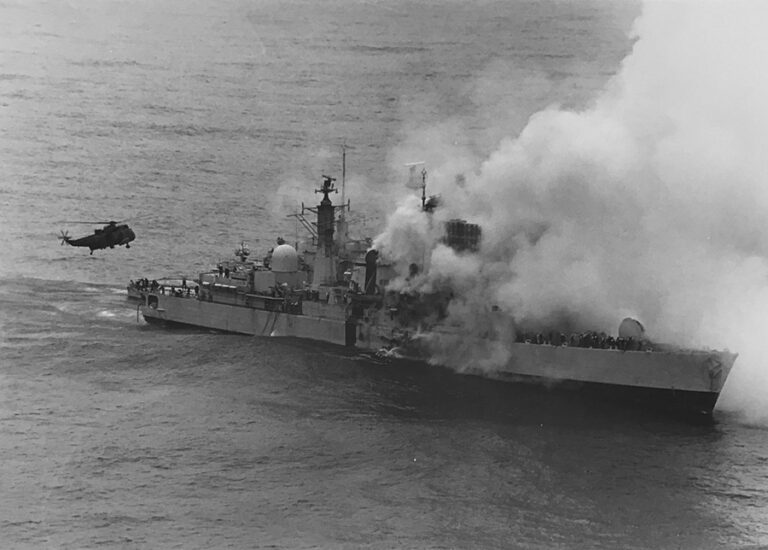
Aftermath
Despite the end of the conflict, leading to the British recapture of the Islands, Argentinian claims to sovereignty continued, and The National Archives holds a range of, mainly, Foreign and Commonwealth Office records which discuss this issue.
As well as the military inquiries mentioned above, the records of the Franks Committee, which looked into the decisions taken by the UK Government in the lead up to the Falklands conflict, and which reported in early 1983, can be found in the CAB 164 and CAB 292 series.
The conflict itself left a lasting mark on the Islands, including the continuation of a British military garrison, but also because of the minefields laid at various points across the landscape. Once again, these issues continue to produce records of interest, and The National Archives provides access to them.
Of course, we have not been able to get close to going through the range of records we hold on this subject; this is merely meant as an overview, and a starting point for those interested in the subject, and hope that it gives you the drive to search our catalogue to find records yourself during and after what is a significant anniversary.
An excellent ‘starter’ for those beginning their research. It’s also worth pointing out that the Margaret Thatcher Foundation’s archive (https://www.margaretthatcher.org/archive) provides free online access to many documents from this period.
In addition Imperial War Museums’ (IWM) online collection has many contemporaries images as well as documents and oral history interviews.
The files that are closed or retained should be opened, it is just that TNA/FCO don’t want to tell us the whole story. Indeed something that hasn’t been mentioned is the files on the sovereignty on the Falkland Islands were removed from the Public Record Office (now TNA) for some time before they were returned. To understand the conflict you need to go back to the removal of the British survey ship (?RSS Shackleton) from the area and of course there was oil near the Falklands. This was not the first time that Argentina had landed on the Falklands as there was an incursion in 1953. Even before the British Navy returned to Portsmouth the Government cut the size of our Navy!. It should be remembered the lack of help from the US Government during the 1982 conflict.
You are confusing Army ‘Unit Historical Records’ and ‘Commander’s Diaries’ which are two separate documents. Although some overlap.
Whilst I agree with some of what you say.
Can you clarify what you mean by lack of help?
Do you class lack of help as not including;
The delivery of aircraft and fuel oil to Ascension, continuously.
Building of extra accommodation at Ascension.
Increase in food and water deliveries to Ascension.
Satellite information about the location of the Argentine fleet.
Open sharing of HUMINT and ELINT information.
Opening their wartime reserves of munition and aircraft spares for UK use.
Provision of the Phalanx CIWS, as fitted to HMS Illustrious and other ships (although the fighting phase had finished by the time they got to the Theatre of operations).
Provision of a more advanced version of the sidewinder AAM.
Provision of ALARM missiles.
Covering UK RN NATO commitments, so that more of our vessels were available for action in the South Atlantic.
Putting pressure on the Argentine government before, during and after the invasion.
And finally, after the diplomatic solution was ended… Coming out in full support of the UK.
Or do you class lack of help as;
Not fighting the war for us?
Disappointing acknowledgement of the US support where the Matthew final comment is far from the truth. In addition to the Hall lists confirming several war winning supplies which were delivered speedily, the quantities of AM2 matting, provided from US stocks I believe, were much in demand, particularly to repair and extend the manoeuvring areas and runway extension at RAF Stanley.
It isn’t the TNA/FCO that aren’t releasing documents as DM incorrectly claimed above, it is the MoD. I was at TNA researching this topic when the post above was made, so had been preparing for that research for some time. This included multiple FOI requests, the majority of which had to be made to the MoD as the originating department.